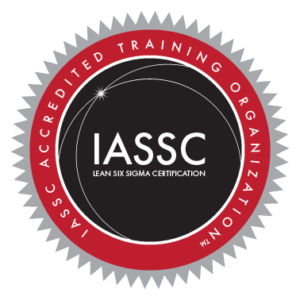Identifying the 8 Forms of Waste
Lean Six Sigma is a fact-based, data-driven philosophy for improving processes that values defect prevention over defect detection. It combines the Lean and Six Sigma philosophies to improve performance by reducing variations in workflow and minimizing the waste that exists in all processes. This post specifically discusses these types of waste within the context of healthcare, where defects can be more fatal than any other industry.
According to the Institute of Medicine, an estimated 98,000 Americans die annually due to medical mistakes. That makes medical errors the third leading cause of death in the United States. Additionally, an estimated 1.3 million people are injured in American hospitals annually, according to a Harvard University study. Lean Six Sigma offers solutions that can eliminate waste, prevent defects and cut those numbers significantly.
Lean generally defines waste as the use of any material, space or time that doesn’t add value to a product. Japanese industrialist Taichi Ohno was an early pioneer of lean manufacturing who identified seven forms of waste, which are the first seven discussed in this post. The eighth form has been identified by Jim Womack of Massachusetts Institute of Technology (MIT).
1. Defects
A defect is anything that requires correction, which can have grave consequences in healthcare. Common examples of defects include an imaging error, mislabeled specimen or specimen with no label at all. Defects require resources such as time and material to correct, which incurs a direct cost for an organization.
2. Waiting
Waiting in healthcare can include waiting for material to arrive, waiting for the next step in a procedure to be completed or a patient waiting to see a medical practitioner. Waiting is a waste for an organization because it accomplishes nothing, while still requiring personnel to be paid for their time. This is one of the most common ways that healthcare organizations waste their resources.
For example, before applying Lean Six Sigma, walk-in emergency room patients of North Shore University Hospital in Manhasset, New York were experiencing wait time averaging 187 minutes. After the bottlenecks in the process were identified and addressed using Lean Six Sigma techniques, that wait time decreased by 37%, according to an article by Villanova University.
3. Overproduction
Overproduction occurs when a process produces more material than the next step requires. This form of waste has a direct cost in manufacturing, which uses capital that could have been used for more useful purposes. Overproduction may also result in a storage cost, which is at least an indirect cost. However, storage can also become a direct cost if the extra product isn’t used before its shelf life expires.
4. Overprocessing
Overprocessing is the performance of activities that consume resources without
providing additional value. Adding features to software that will never be used, and testing that doesn’t provide additional information are common examples of
overprocessing in healthcare.
5. Excess Inventory
Excess inventory is a form of waste that’s very similar to overproduction, primarily since it also incurs storage costs. Unnecessary storage incurs a cost that isn’t the best use of an organization’s capital, which can become prohibitive when inventory exceeds available storage. Similar to the waste of overproduction, excess inventory can lead to material waste due to spoilage.
6. Motion
Motion is a form of waste resulting from the unnecessary movement of people, which usually involves other forms of waste. People in motion are typically unable to accomplish their primary duties and may need to spend additional time on other tasks such as searching for materials or information. Poor filing and retrieval systems often result in a waste of motion.
7. Transportation
Transportation involves the movement of material, which occurs when the material isn’t at its point of use yet. Each time you need material that isn’t at your location, that material must be transported before you can use it. Transportation time is therefore a form of waste closely associated with waiting. Furthermore, transportation costs aren’t the best use of an organization’s resources.
8. Underutilization
Womack identified underutilization as an eighth form of waste, in addition to the other seven recognized by Ohno. It refers to the underutilization of human capital, meaning someone’s talents aren’t being used in the best way. This type of waste often occurs when someone is overqualified for their position, preventing an organization from making full use of their potential.
Takeaways
- Lean Six Sigma is a data-driven philosophy to improve processes. It combines the Lean principles and Six Sigma philosophies to improve performance by reducing variations in workflow and minimizing the waste that exists in all processes.
- Medical errors are the third leading cause of death in the United States. Therefore, a significant opportunity for process improvement exists within the healthcare industry, where defects are often fatal.
- There are seven forms of waste identified by Japanese industrialist Taichi Ohno, who was an early pioneer of lean manufacturing concepts. Jim Womack of MIT identified an eighth form of waste.
At Vector International, our experienced process improvement consultants use Lean Six Sigma tools and methodologies with our clients to eliminate waste, optimize processes, and implement controls to ensure enhancement and sustainability in healthcare and other industries. Our goal is to help your business achieve operational excellence. For more information, contact us now!






 '
'
